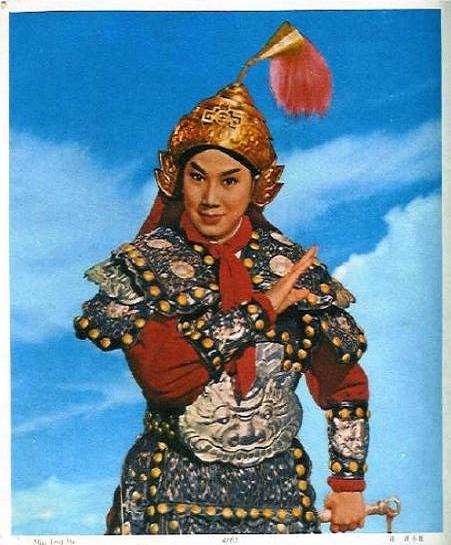Lady General Hua Mulan

Director: Griffin
Yueh Feng
Year: 1964
Rating: 7.5
With the Disney
version of Mulan being released at some point soon (hopefully as the coronavirus
may have something to say about that), I thought that I would dip back into
two earlier films I have about Mulan that I have never seen. Mulan is a legendary
figure in China going back a thousand years to a poem titled The Ballad of
Mulan which tells the tale of a female disguising herself as a man and joining
the army to battle invaders from the north. As to whether there was an historical
figure of Hua Mulan (Hua being the family name) it is unlikely. There are
actually two versions of the story of Mulan out there - one with a happy
ending (if you consider getting married a happy ending), the other with a
tragic one in which Mulan dies.
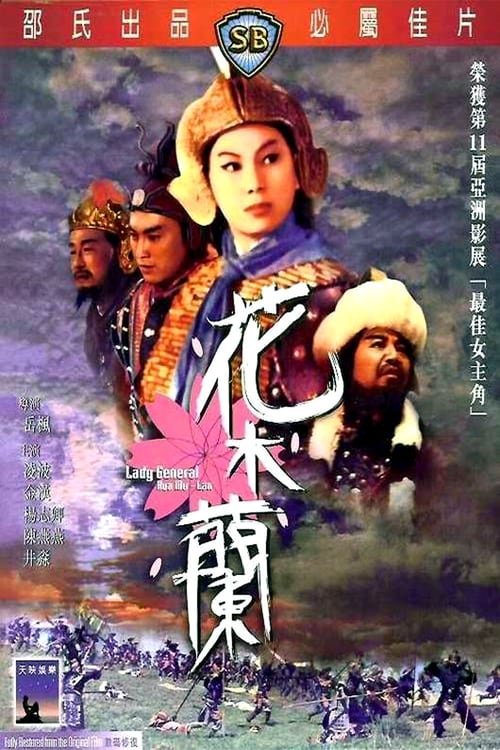
The character was incorporated into other
writings over the years and so by the time of cinema, she was a natural to
be portrayed in film and has been many times. The first one was in the silent
period, two were made in the 1930's, three in the 1950's, this one in the
1960's, three in the 1990s (two were animated including the Disney version)
and a 2009 film titled just called Mulan which is the other one I have. I
don't know how many of these early films are available to see and though
I don't know I would imagine most or all of them take the happy ending route.
The tragic version would certainly be an interesting take on the story. From
what I have read the new version takes out the love angle that to some degree
is the heart of the older ones because the producers thought it would look
bad in the era of metoo movement - which just strikes me as ridiculous.
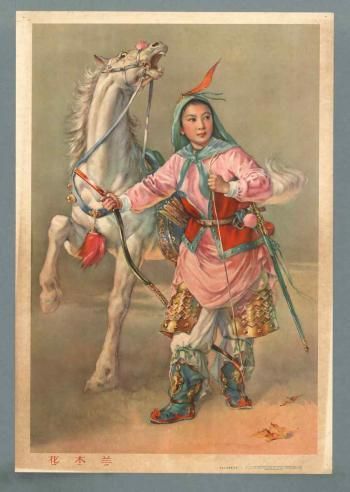
This one comes from the Shaw Brothers and
they make it into a musical - not the kind of musical that we are familiar
with in the West but that of Chinese Opera or as they call it Huangmei Diao.
Back in those days these were very common and the Shaw Brothers made a few
that are considered classics. In one analysis the author places this film
in the Second Classical period which runs from 1963 to 1964 and claims that
the decline of this style of film came after that. I have not seen enough
of these to have my own opinion, but looking at the titles it strikes me
as correct.
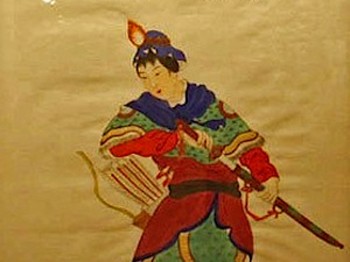
The idea of Huangmei Diao or Chinese Opera
deters a lot of us in the West from watching these films. We avoid them like
the coronavirus but with less hand washing. To our untrained ears, the singing
can sound very harsh and high pitched - but in the films though they certainly
follow the traditions of the theatrical Chinese Opera, they make the sound
much more tuneful, melodic and less shrill. Friendlier to modern audiences
at the time. It takes a while to adjust to it, but once you do it can be
quite fun as the dialogue switches back and forth between normal speaking
and singing. The lyrics which are thankfully translated on the Celestial
DVDs are very good - amusing at times and emotional other times. Usually
the actors are being dubbed but Ivy Long Po as Mulan does her own singing
as she did in all of her Huangmei Diao films.
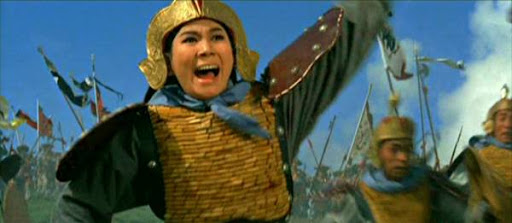
When Ivy Ling Po starred in this film,
she was an enormous much loved person and still is to this day. Her film
from 1962, The Love Eterne - also a Chinese Opera - was one of the biggest
hits ever in Hong Kong and Taiwan. People would wait for hours to watch her
go by in car if they knew she was coming - people went to see the film dozens
of time. It was based on another Chinese legend usually referred to as the
Butterfly Lovers. It is a tale of tragic love in which a woman disguises
herself as a man in order to study at a school and she falls in love with
a man. Similar to this film except interestingly in The Love Eterne the man
is played by Ivy Ling Po. Here she plays a woman who disguises herself as
a man. How authentically is questionable as she is always quite feminine
and very charming. That anyone doesn't figure out "he" is a woman in 12 years
of battle is kind of absurd - I guess they didn't do a lot of bathing in
those days! In this film towards the end there is an amusing song in which
she joking mocks the man she loves that he never figured out she was female
even after she had given him hints - that made him a little uncomfortable
- but in the song she mentions the characters of Butterfly Lovers/ The Love
Eterne - Liang Shanbo and Zhu Yingtai and sort of tells him you were even
dumber than Liang Shanbo. That was only three years of knowing each other,
you had 12 years to figure it out!
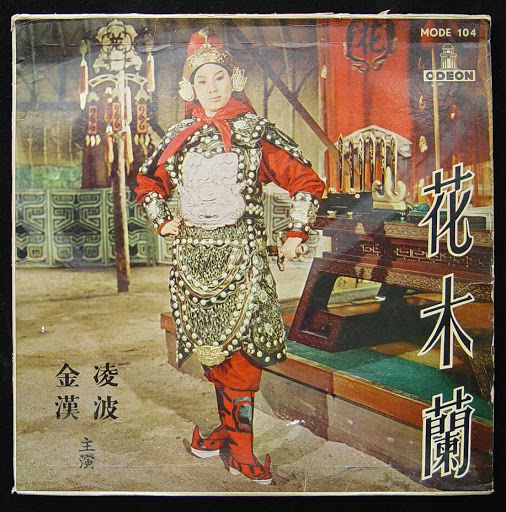
I expect the story of Mulan is even known
to most of us in the West because of the Disney animation. Barbarians have
invaded China and the elderly father (Tang Ch-ching) in the Hua family is
sick but still insists that it is his duty to go to war. Mulan who has practiced
martial arts for years persuades her father - after dueling him with spears
in which the father doesn't recognize Mulan who is dressed as a man but still
looks just like Mulan - that she should take his palce. He then agrees to
let her go off in his place knowing that if she is discovered to be a woman
she and he will likely be executed. His advice to her - in song is - if you
see one enemy kill one, if you see two enemies kill two two. Nice pep talk
dad.
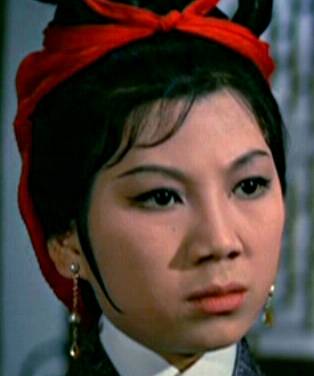
Over the twelve years of warfare she finds
herself falling in love with General Li, played by Chin Han, and in fact
the two of them were perhaps really falling in love as they were to be married
two years later and still are I believe. It gets a little complicated when
the Commander (Ching Miao) decides that Mulan would be the perfect match
for his daughter. I really enjoyed this though I would not recommend it to
others not versed in this style of film though it is a decent introduction
to the form. Great production values, a famous much loved story and Ivy Ling
Po is beyond wonderful with both her singing, sly expressions and generally
a fun portrayal of Mulan (she won the Best Actress Award). It is a story
of course of patriotism and love for China which may explain its long term
popularity and why the Mainland has produced yet another version. But besides
that much of the emotional core of the film is the portrayal of filial love
and family sacrifice which are universal.








